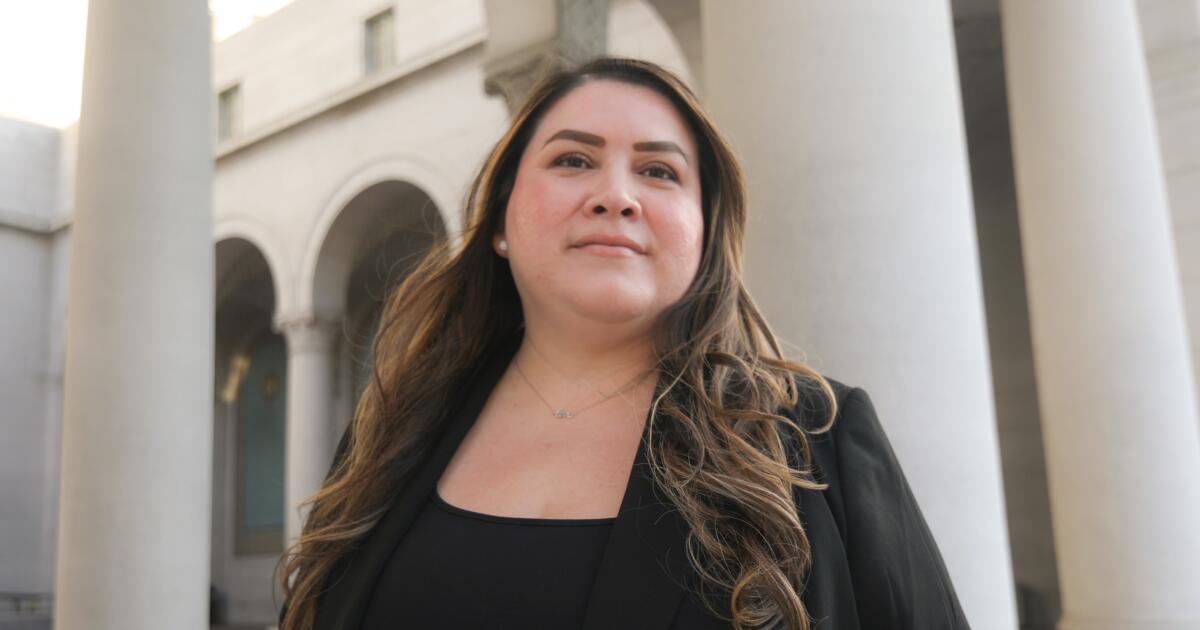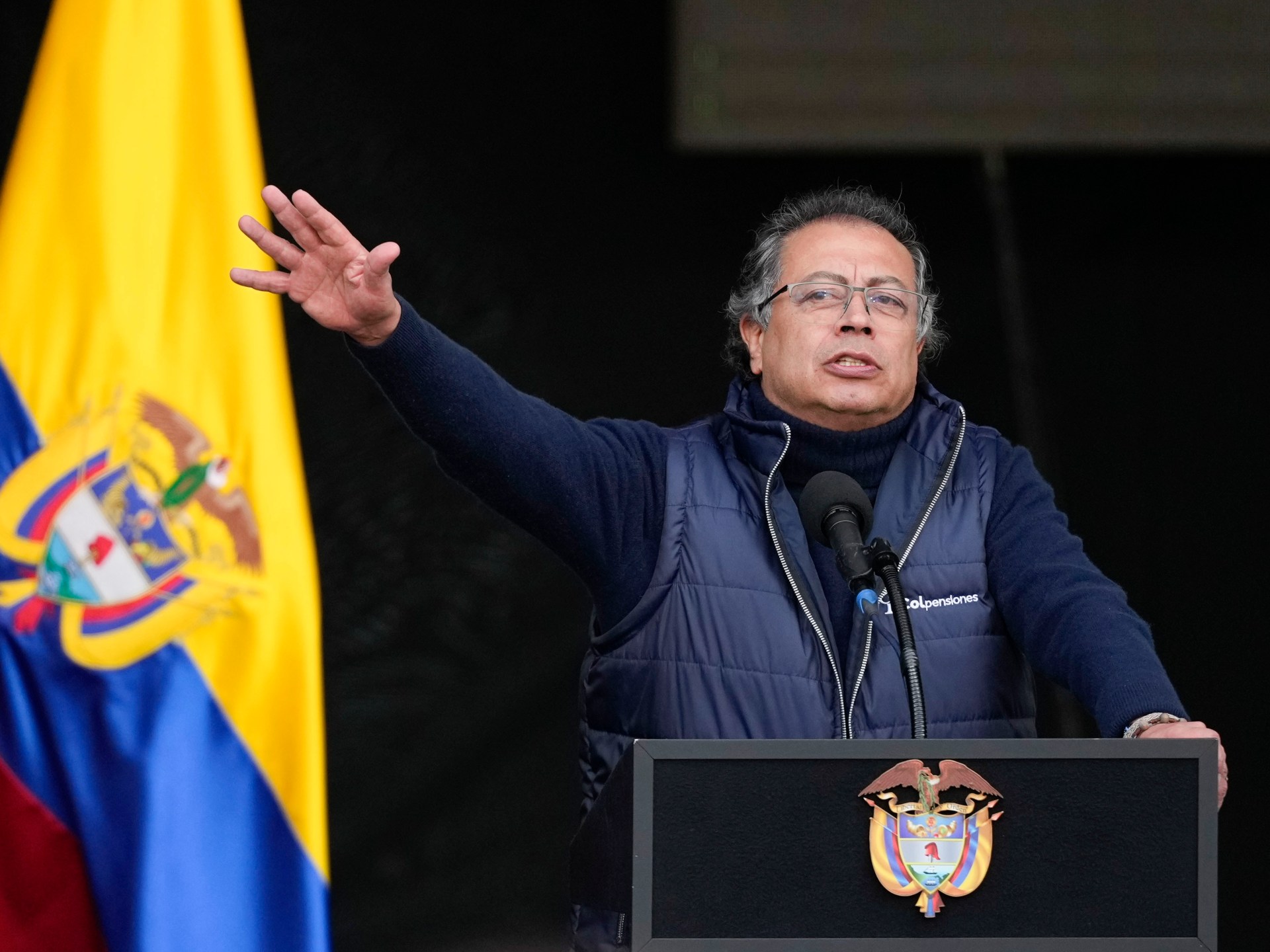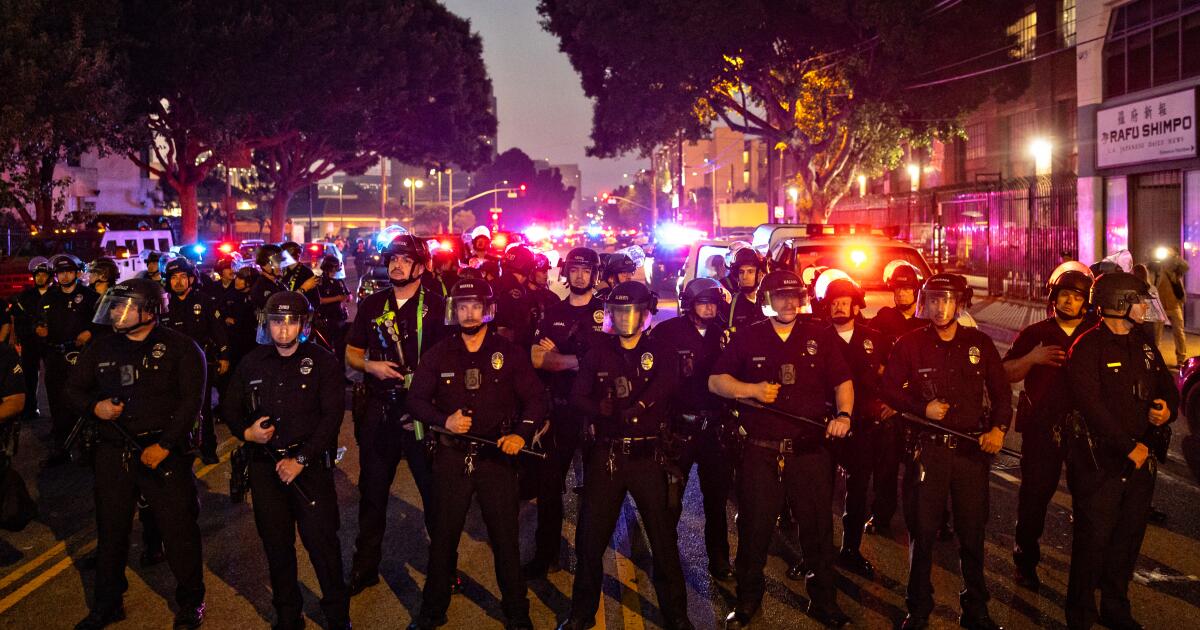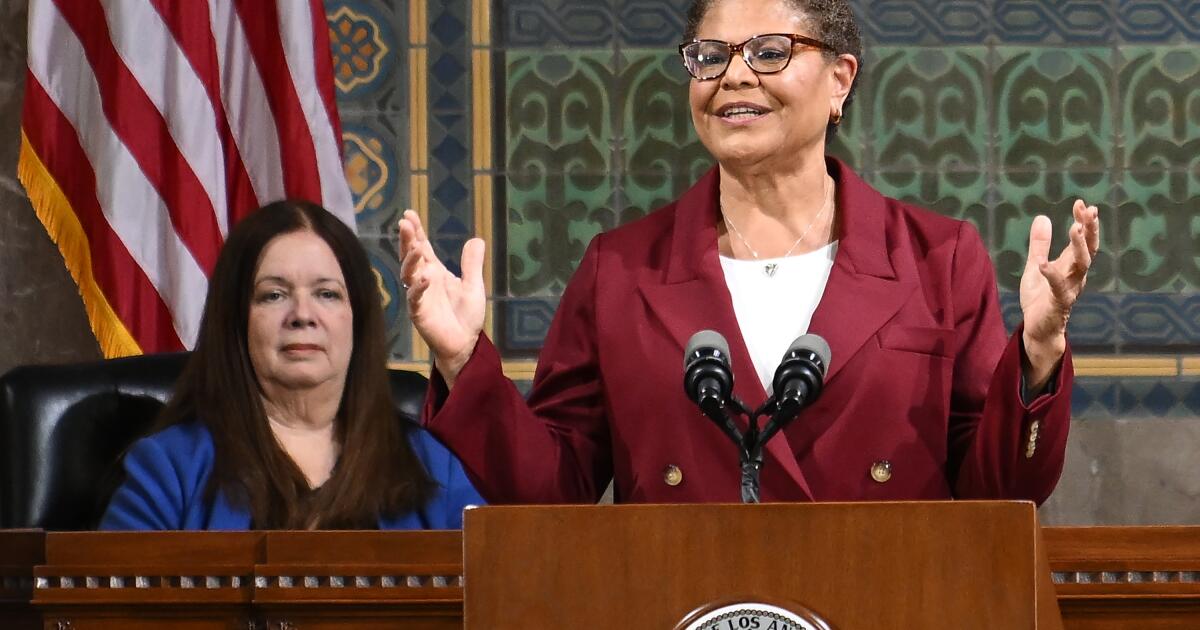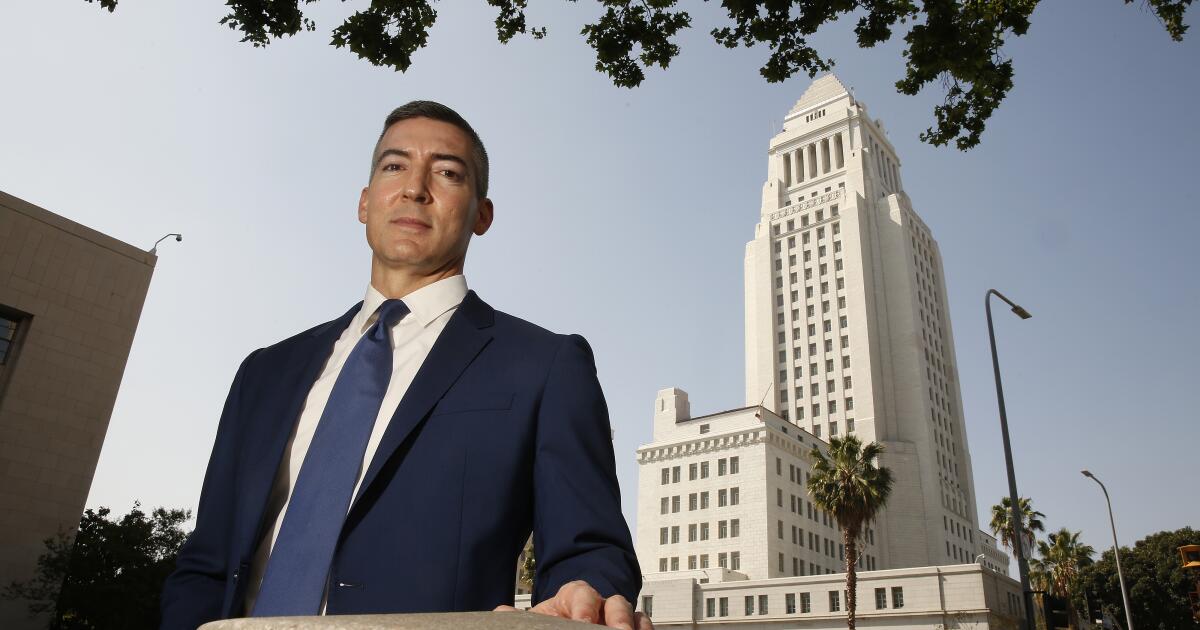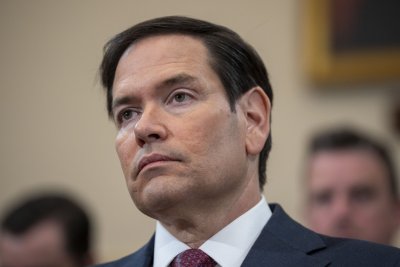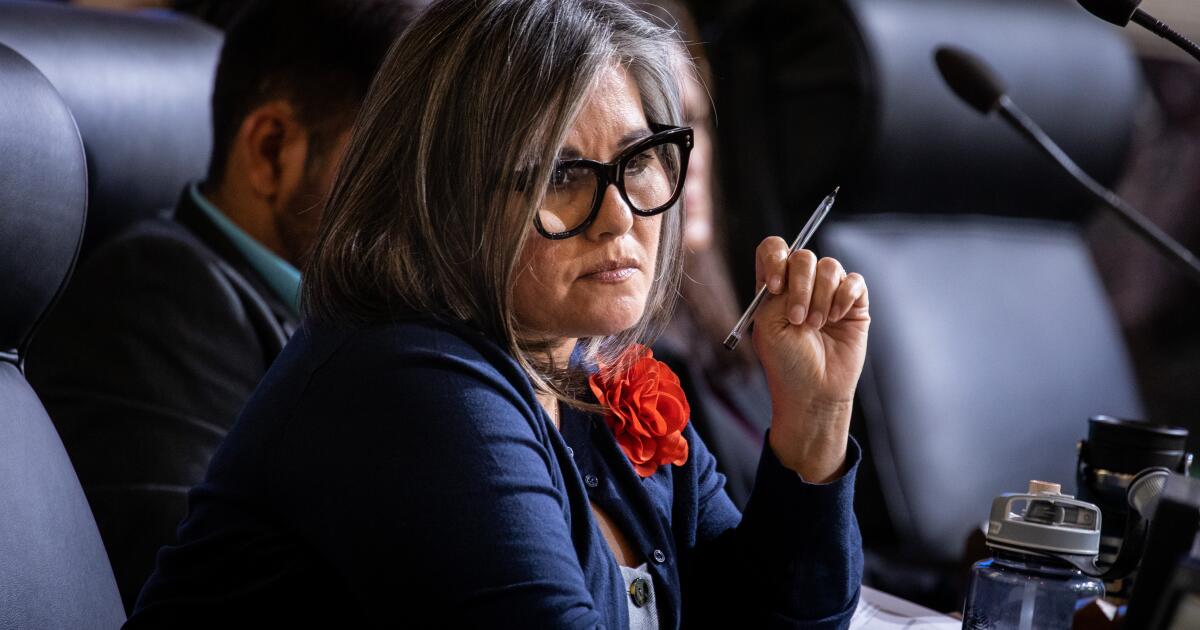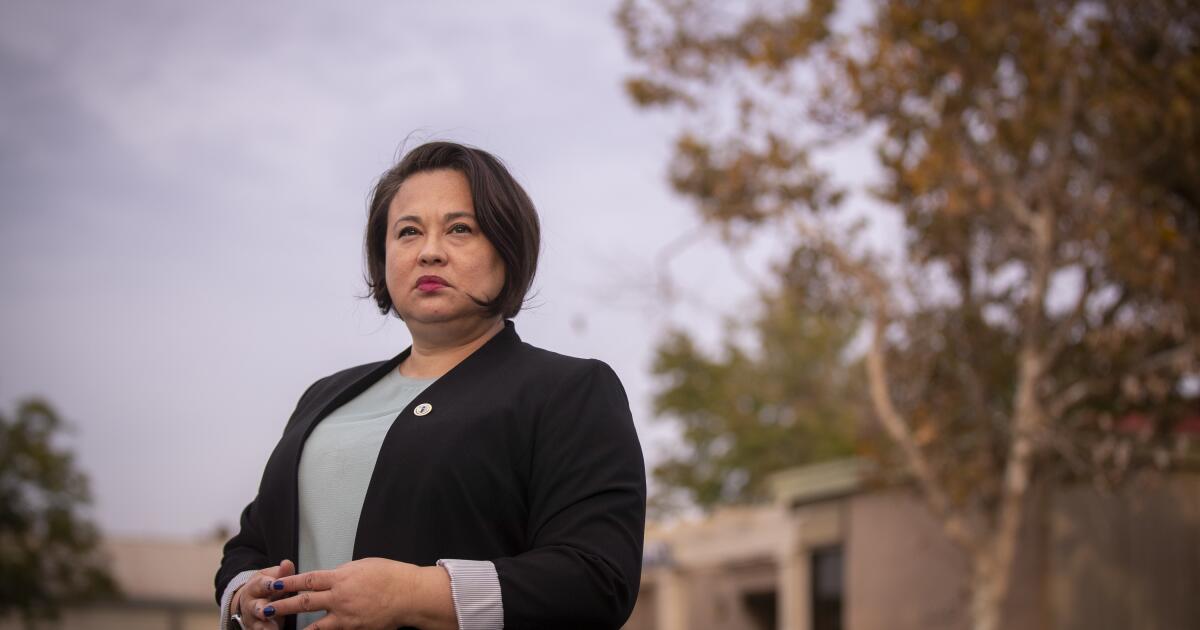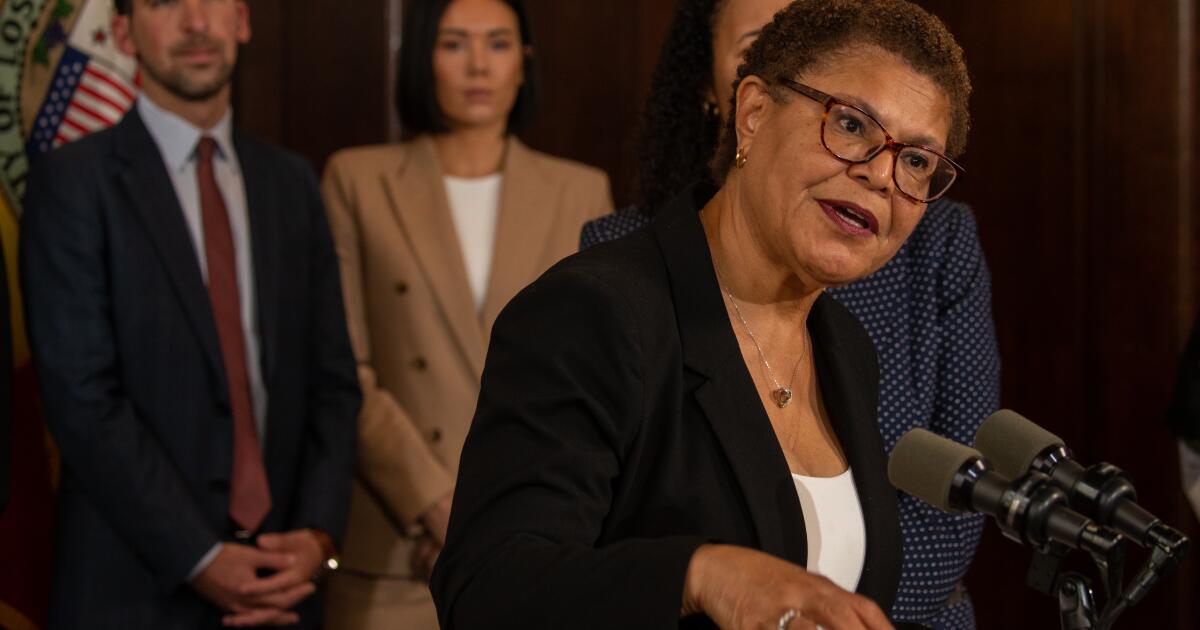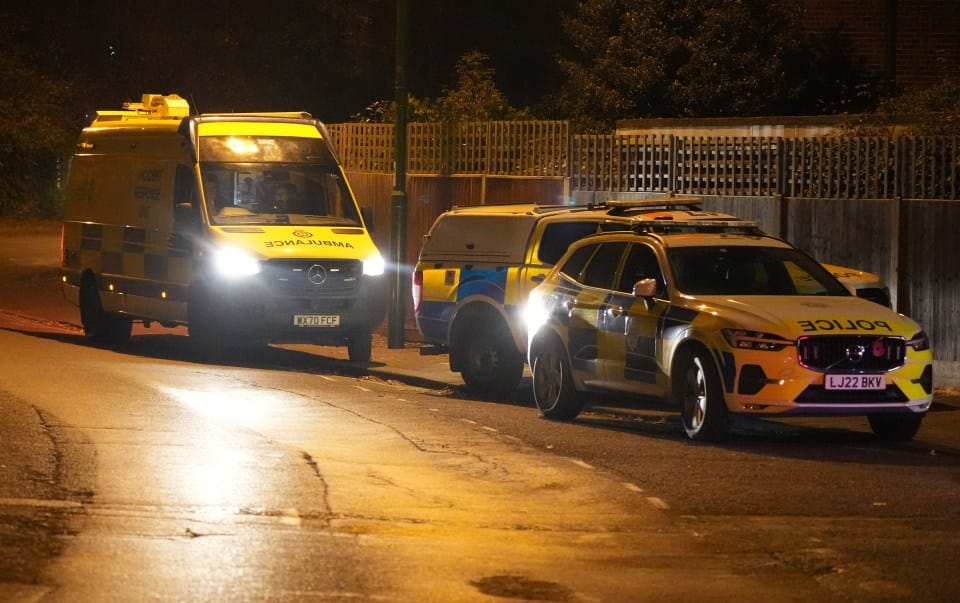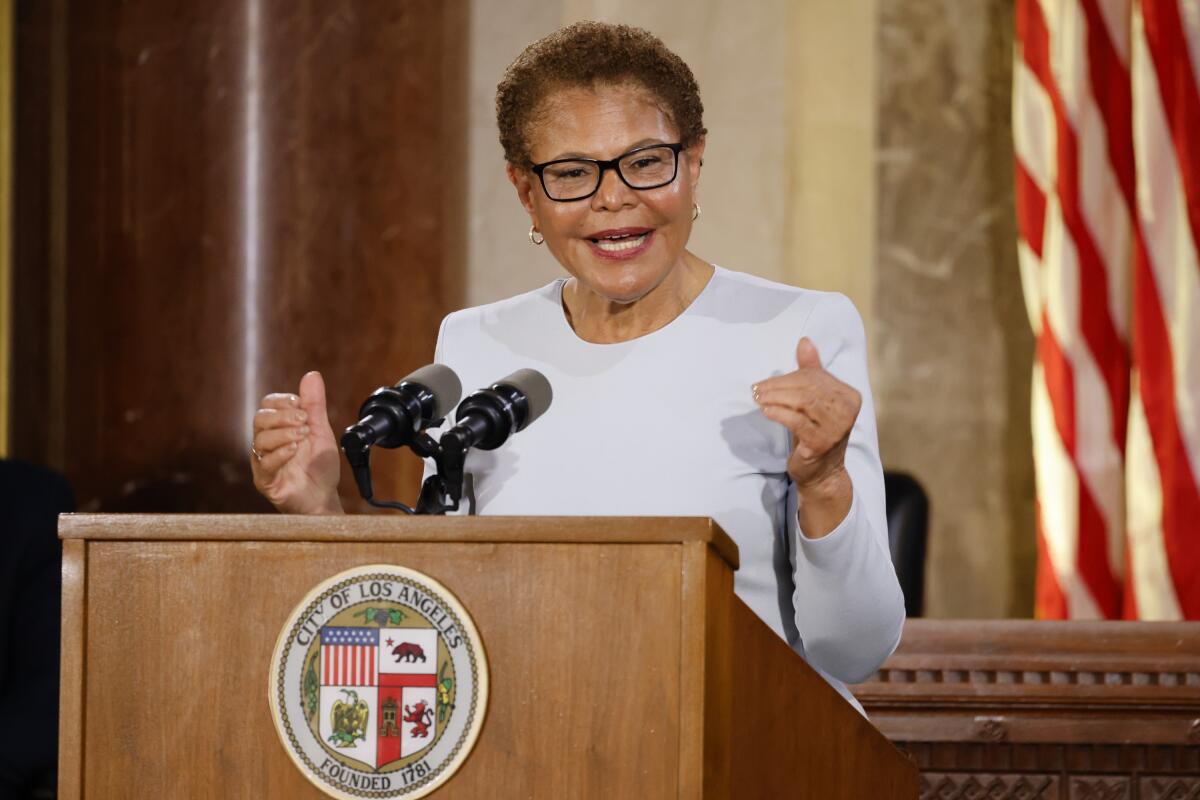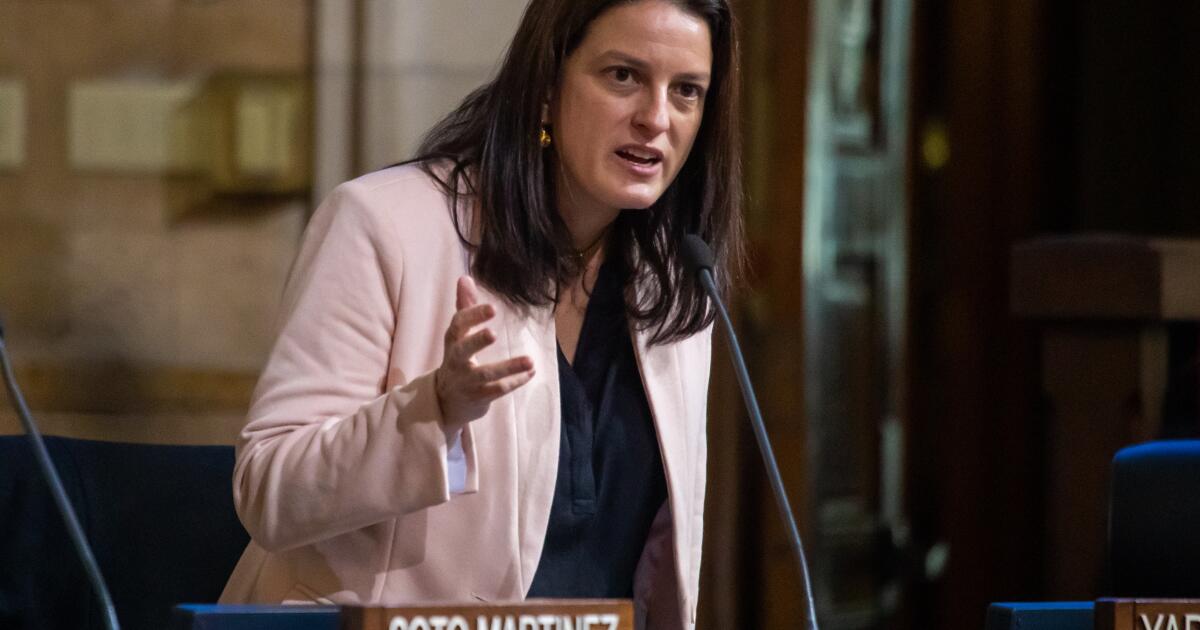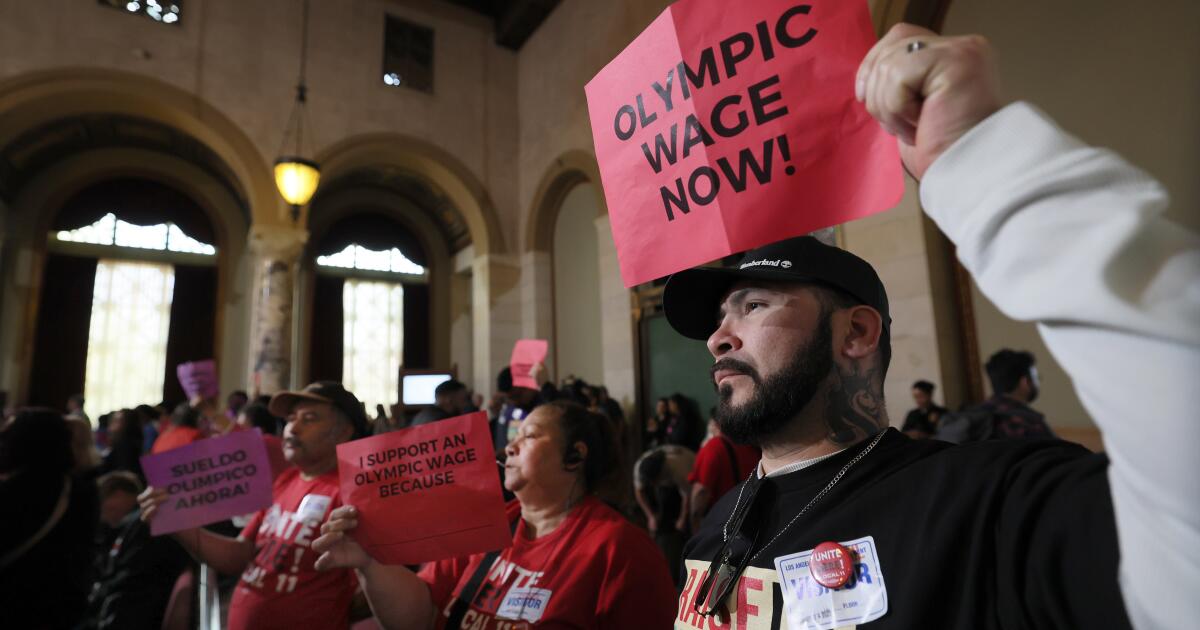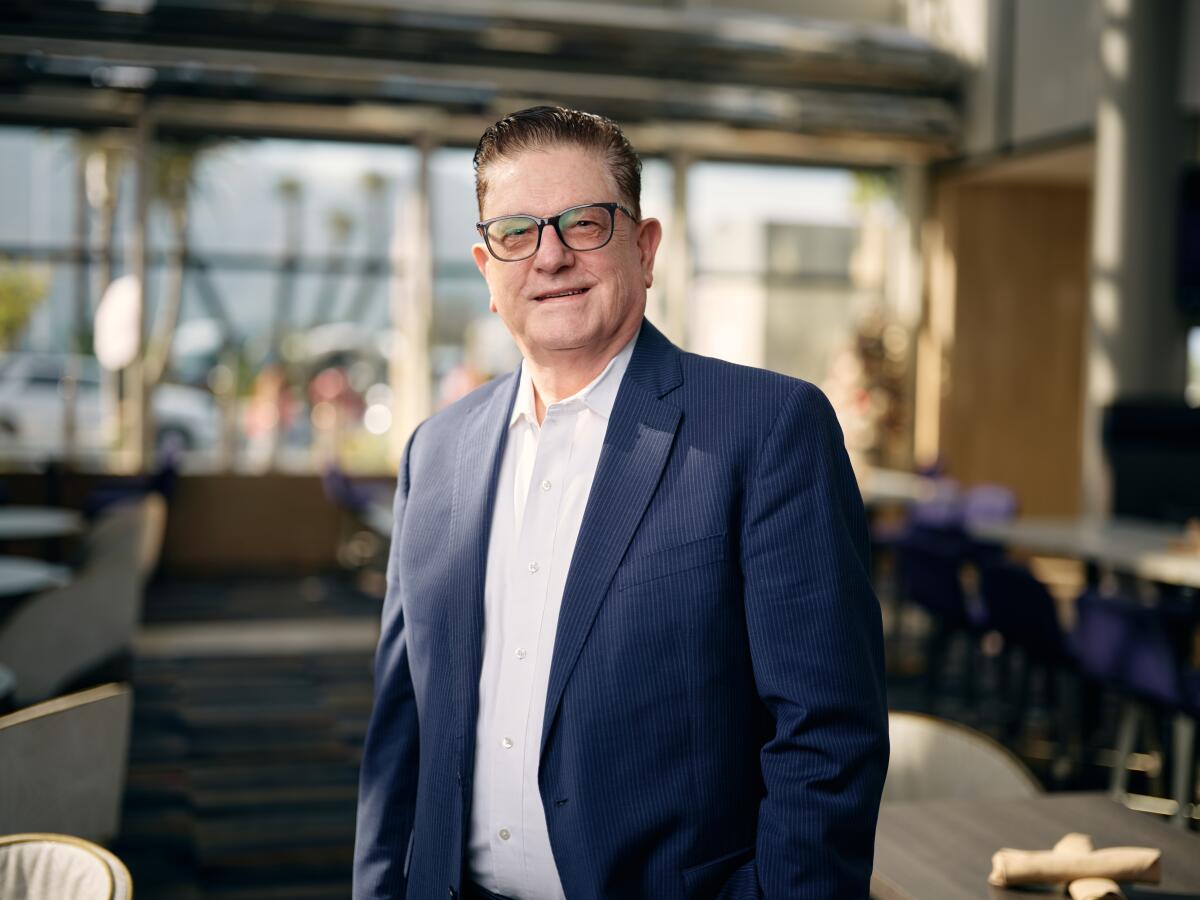Meet the face of L.A. Mayor Karen Bass’ immigrant outreach
Claudia Aragon was headed home after dropping her puppy off at obedience school when the first text came in early on Friday, June 6.
“Ice showed up at the Home Depot in cypress park. Want to make sure we can help people,” an immigrant service provider texted her. “this is awful claudia.”
Aragon, who has directed Mayor Karen Bass’ Office of Immigrant Affairs since March 2023, had been sick and was planning to stay home that day.
But she lives only a few miles from the Cypress Park site and decided to drive over.
She arrived outside the Home Depot in the aftermath of the raid — an environment she described as akin to “calm after the storm” in the wake of a natural disaster.
“Everyone’s kind of trying to find their bearings and looking around like, ‘What happened?’ Some of the food vendors that were there were sort of putting things back,” Aragon said.
There would be little calm for Aragon over the next days and weeks.
Within an hour or so of getting home that Friday morning, Aragon’s phone rang again, with someone telling her that federal authorities were at a sprawling fast-fashion warehouse in the Garment District.
Far from being isolated incidents, the Cypress Park Home Depot raid and the arrests at Ambiance Apparel were initial blasts in what would be much broader upheaval, as the Trump administration’s immigration enforcement teams descended on Los Angeles and a military deployment soon followed.
Through it all, Aragon’s phone kept buzzing, as she connected with activists and a host of immigrant service providers.
The next few hours were a surreal and overwhelming frenzy, as Aragon, immigrant advocacy groups and the city all tried to piece together what was happening with little communication from the federal government.
Aragon, who worked in Bass’ congressional office before joining the mayor’s office, has known and collaborated with many of her community counterparts for years.
Those relationships were battle-tested early in Aragon’s city tenure, as Texas Gov. Greg Abbott began sending buses of migrants to Los Angeles in 2023. Aragon was responsible for coordinating the response, as the city, faith and nonprofit partners helped situate the new arrivals.
A day or two after Donald Trump was elected to a second term in the White House, Aragon also sat down with the mayor’s senior staff to strategize on how the city could prepare for potential immigrant raids, since Trump had made no secret of his intentions during the campaign.
The city’s immigrant affairs office is currently a lean two-person team, with Aragon and a language access coordinator. The department was first created under Mayor James Hahn and then resurrected by then-Mayor Eric Garcetti.
Aragon herself is “a very proud immigrant,” having come to the United States from El Salvador when she was 7.
“To be here with Mayor Bass, having the opportunity to elevate the immigrant community through policy, through funding to provide support for providers who champion the community — my community, for families that are like mine — is amazing and an honor,” Aragon said.
It can also be painful at this particular moment in history, when the promise of the immigrant American dream that made her life possible now seems in existential jeopardy and so many are living in fear.
“People can’t even go down the street without being detained … I can’t even look at them and tell them they’ll be okay,” Aragon said.
Newsletter
You’re reading the L.A. on the Record newsletter
Sign up to make sense of the often unexplained world of L.A. politics.
You may occasionally receive promotional content from the Los Angeles Times.
State of play
— THE CHAOS CONTINUES: Federal immigration raids continued across L.A. County this week, reaching into Hollywood, Pico Rivera and other locations. In San Fernando, L.A. Councilmember Monica Rodriguez and San Fernando Vice Mayor Mary Solorio went on Instagram Thursday to spread the word about residents being swept up from the areas around a Home Depot in San Fernando and a Costco in Pacoima, in hopes of alerting their families.
“We only have first names of some of the individuals,” Solorio said. “Those individuals are Omar, Elmer, Antonio, Saul and Ramiro.” Rodriguez read out contact information for immigrant defense groups, saying: “We need to protect one another in these very scary times.”
In Hollywood, L.A. Councilmember Hugo Soto-Martínez voiced his fury over a raid in his district at the Home Depot on Sunset Boulevard.
“Despicable doesn’t even begin to describe what this is,” he told The Times. “You hear about this happening in military dictatorships and totalitarian governments. To happen here in the second-largest city in America is — I don’t have words, just outrage.”
— ‘PROFOUND HARM’: Several people were also detained at a bus stop near a Winchell’s Donut House in Pasadena, evoking angry responses from County Supervisor Janice Hahn and U.S. Rep. Judy Chu. Hahn, who chairs Metro’s transit board, worried that residents will be too afraid to go to work, attend church and, now, hop on public transit. “The fear they are spreading is doing profound harm in our communities,” she said. Metro officials underscored those concerns, saying the transit system has seen a 10% to 15% drop in bus and rail ridership since immigration enforcement activities began.
— BEHIND THE MASK: County Supervisor Kathryn Barger voiced fears this week that some of the masked men pulling over Angelenos may not be immigration agents but rather “bad players” impersonating federal law enforcement. “I tell you this story because we don’t know if they were ICE agents or not,” she said at Tuesday’s board meeting. Hahn wasn’t convinced, replying: “Make no mistake about it: It isn’t people impersonating ICE. It is ICE.”
— DODGER MANIA: Yet another part of the city caught in the uproar was Dodger Stadium. Raul Claros, a community organizer now running for an Eastside seat on the City Council, held a press conference Wednesday to demand that the team do more to help families devastated by the raids. “The largest economic engine in this area is silent!” he told ABC7 and other news outlets. “Wake up! Do better!”
The Dodgers later signaled the organization was willing to help. Before the team made its announcement, federal law enforcement agents were spotted outside the stadium, generating new protests. “People are out here because they don’t want to see their families torn apart,” Councilmember Eunisses Hernandez said in an interview with NBC. The team, in a statement on X, said it had denied entry to those agents. (Dodgers referred to them as ICE, federal officials said they were from U.S. Customs and Border Protection.)
— DOWNTOWN SETTLES DOWN: Confrontations between law enforcement agencies and anti-ICE protesters tapered off this week, prompting Mayor Karen Bass to scale back, and then repeal, her curfew order for downtown, Chinatown and the Arts District. But those showdowns have caused legal and financial shock wages.
— RISING PRICE TAG: For example: City Administrative Officer Matt Szabo reported Friday that the costs of the protests to the city had jumped to more than $32 million, including $29.5 million in costs to the LAPD. The City Council voted 12-3 on Wednesday to loan the LAPD $5 million from the city’s reserve fund to cover the associated police overtime. Councilmember Ysabel Jurado, who represents downtown, voted no, as did two of her colleagues: Hernandez and Soto-Martínez.
— A NEW GIG: Former Mayor Eric Garcetti (who, until recently, was serving as U.S. ambassador to India) has been named Ambassador for Global Climate Diplomacy on behalf of C40 Cities Climate Leadership Group.
— HEADING TO COURT: Free speech advocates have begun filing lawsuits to stop what they call the “continuing abuse” of journalists covering protests in L.A. One federal lawsuit, which targets the city, described instances where journalists have been tear-gassed, detained without cause and shot with less-lethal police rounds.
— THROUGH THE ROOF: The overall cost of legal payouts reached a new peak for City Hall this year, driven in large part by lawsuits over policing and “dangerous conditions,” such as cracked or damaged streets and sidewalks.
— TOURISM TURMOIL: The battle between tourism workers and a coalition of airline and hotel groups intensified this week, with the hotel employees’ union launching a pair of new ballot measures. Unite Here Local 11, which recently won approval of a $30 minimum wage hike for its members, proposed an ordinance to require voter approval for any hotel project that adds 80 or more rooms. Union co-president Kurt Petersen portrayed the measure as a response to an ongoing effort by the L.A. Alliance for Tourism, Jobs and Progress, a business group, to repeal the $30 wage.
— THAT’S NOT ALL: Unite Here also unveiled a ballot proposal to hike the minimum wage for employees in non-tourism industries. Under city law, hotel employees currently receive a minimum wage of $20.32 per hour, compared to $17.28 for most non-tourism workers. The union’s new proposal would bring every worker in L.A. up to their level, jumping first to $22.50 and eventually reaching $30 in 2028.
— ALL ABOARD: Officials with the Metropolitan Transportation Authority plan to lease 2,700 buses to get people around the city for the 2028 Olympic and Paralympic Games. The agency needs $2 billion to make that happen — and is hoping to secure the funding from the federal government.
— COLE FOR THE SUMMER: Chief Deputy Controller Rick Cole is stepping down on July 11 from his job with City Controller Kenneth Mejia. In his announcement on LinkedIn, Cole called Mejia an “inspiring young leader” who “blazed a new path for transparency and accountability.” He also acknowleged the demands he’s faced since winning a seat on the Pasadena City Council, which he called a “more-than-part-time role.” “Kenneth has been incredibly flexible and supportive but I recognize that I couldn’t do justice to both jobs indefinitely,” he wrote.
MAKING THE ROUNDS
In the wake of the protests and weeklong curfew, L.A.’s mayor has been offering support to businesses in Little Tokyo, the Civic Center and other areas hard hit in downtown by vandalism, graffiti and theft. Bass spent about half an hour on Wednesday visiting restaurants on 1st Street, whose windows were covered in plywood.
Bass dropped into Far Bar, Kaminari Gyoza Bar and other spots, chatting up the proprietors and posing for photos with customers. Afterward, she made an appeal to Trump to withdraw the U.S. Marines, saying things were safe and stable.
“In light of the fact that L.A. is peaceful, there are no protests, there isn’t any sign of vandalism or violence, I would call on the administration to please remove the troops,” she said.
Bass was quickly interrupted from Clemente Franco, an Echo Park resident who said he was frustrated with the state of the city — dirty streets, broken sidewalks, streetlights that are out because of copper wire theft.
“A year and a half with no lights,” he told deputy mayor Vahid Khorsand, who attempted to form a buffer between Franco and Bass. “A year and a half the lights have been off. They took the wires. The whole street is black.”
Khorsand asked Franco to provide him a list of problem locations.
QUICK HITS
- Where is Inside Safe? The mayor’s signature program to tackle homelessness did not launch any new outreach operations this week, according to her team.
- On the docket for next week: The council’s transportation committee is set to meet Wednesday to take up a proposal to regulate public space around L.A.’s “ghost kitchens,” which have generated complaints about unsafe traffic behavior and other neighborhood woes.
Stay in touch
That’s it for this week! Send your questions, comments and gossip to [email protected]. Did a friend forward you this email? Sign up here to get it in your inbox every Saturday morning.
